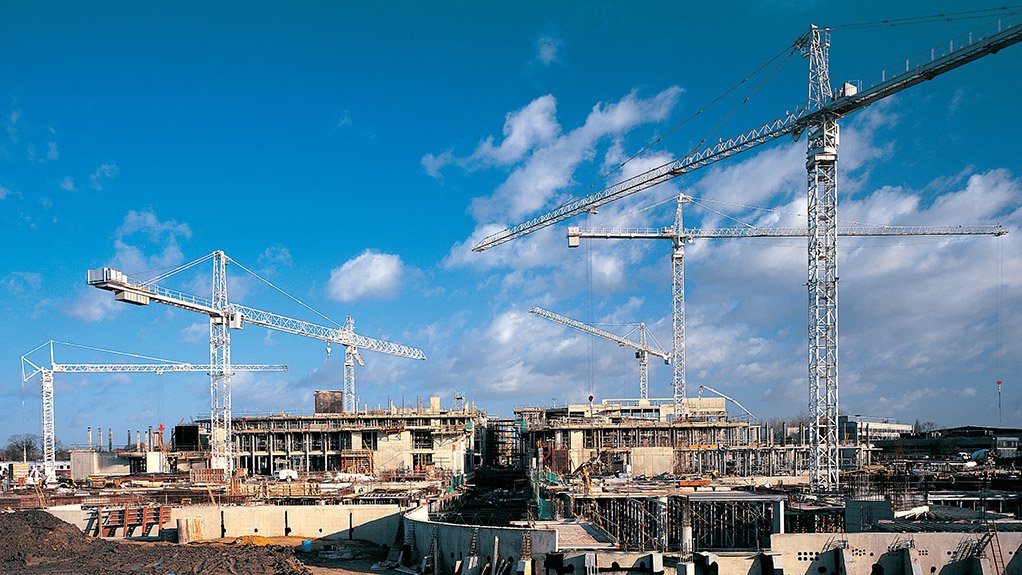South Africa’s gross domestic product (GDP) contracted by 1.3% quarter-on-quarter in the quarter ended June 30.
“The real economy has not performed that well, including construction, which has always been one of the main job creators,” Statistics South Africa (SA) statistician-general Pali Lehohla said on Tuesday.
He added that several factors had led to the contraction, including policy. He noted that, while economists would expect the manufacturing sector to boom, owing to the lower rand, factors such as the collapsing steel price, was hampering this sector.
The biggest contributors to the contraction were the manufacturing sector, which contracted 6.3% quarter-on-quarter, and the mining sector, which contracted by 6.8% quarter-on-quarter.
“Excluding these two sectors . . . the economy would have registered almost flat (0%) growth in the quarter. The lacklustre performance of both of these industries is partly explained through electricity supply cuts, weak demand and softer key commodity prices.
“The recent trends in the latter, in our view, pose a renewed threat to the near-to-medium outlook for growth in this side of the economy given their strong reliance on export receipts and ultimately Chinese demand,” said BNP Paribas Cadiz Securities economist Jeffrey Schultz.
Investec economist Annabel Bishop commented that the contraction in GDP was not solely as a result of low commodity prices and below-trend global trade volumes.
“Along with the dramatic impact on interest rate-sensitive sectors of higher interest rates, insufficient reinvestment in the electricity sector since 1994 has seen inadequate infrastructure to allow supply to meet demand, the upswell in the power of tripartite alliance members has seen rigid labour laws, debilitating strike action and a plunge in business confidence as the ease of doing business has declined materially – not least because of the threat to private sector property rights,” she stated.
Meanwhile, agriculture contracted by 17.4% quarter-on-quarter, owing to severe drought conditions, while the utilities sector contracted by 2.9% quarter-on-quarter.
However, the finance sector grew by 2.7% quarter-on-quarter and the personal services sector by 1.3%.
Despite the negative quarter-on-quarter figure, the unadjusted GDP increased by 1.2% year-on-year in the second quarter, while it also increased by 1.6% for the first six months of the year, compared with the first six months of 2014.
“We should not be surprised by the one negative number and the other positive number, as it has been designed to give different views. However, we cannot predict if we are headed to a recession. It is too early for us to know if we are going to start picking up or not,” Stats SA economic statistics deputy director-general Joe de Beer noted.
Bishop said growth for the full year was likely to be below 2.% year-on-year.
“Subdued economic growth greatly increases the likelihood of a credit rating downgrade, as outlined by the ratings agencies. By continuing to run against the global trend on monetary policy, South Africa risks higher long-term interest rates, stagflation, crippling job losses, substantial political and social unrest and a fall in government revenue,” she warned.
North West University Business School Professor Raymond Parsons agreed that the domestic economy would struggle to reach the 2% growth rate for the full year.
“Over the past 12 months, the growth rate averaged 1.6%. On present trends, the growth rate in 2015 as a whole is more likely to be about 1.5%, to which must now be added the impact of lower global commodity prices.
“Adverse global trends are emerging at a time when the South African economy is particularly vulnerable. The recent sharp slide in the rand and the question marks over its future trajectory must also be factored into South Africa 's economic performance,” he commented in a statement.
He further noted that the weak economic outlook, paired with a less supportive international environment, would have important implications for the next meeting of the Monetary Policy Committee in September, as well as the Medium Term Budget Policy Statement in October.
“There are several new uncertainties and risks that now need to be weighed in monetary and fiscal policy. Already several leading international economists are warning that we are now in a world where seemingly tough minded policies may actually make things worse and caution is advised.
“What South Africa needs is collaborative leadership and bold implementation that concentrates on the urgent structural changes the economy requires to put it on a sounder footing in future, such as through the National Development Plan.
“We need to act for the longer term, beyond short-term political and business cycles, with an economic roadmap that offers more predictability and certainty in policy. The building of confidence among key stakeholders is a high priority, if the South African economy is eventually to be a 6% one, instead of a 2% one,” he said.
Nomura, meanwhile, revised its GDP growth forecast for this year down from 1.9% to 1.6%, while it now also forecast growth of 2.1% and 2.6% respectively for 2016 and 2017, compared with previous estimates of 2.3% and 2.8% respectively.
“The Eskom shock finally hit home and this is even as the China and terms-of-trade shocks are only starting to build. The current government narrative is that this is owing to international forces,” Nomura economist Peter Attard Montalto said, noting that this ignored the fact that policy choices had left “very weak foundations”.
He further warned that an intensification in load-shedding or a strike in the gold mining sector could have a further negative impact on economic growth.
“South Africa is having serious growth issues in what was meant to be an ‘okay’ quarter. The National Treasury understands this; even the African National Congress understands this. However, it and the government are unable or unwilling politically to take difficult measures to correct it,” he said.
EMAIL THIS ARTICLE SAVE THIS ARTICLE
To subscribe email subscriptions@creamermedia.co.za or click here
To advertise email advertising@creamermedia.co.za or click here











